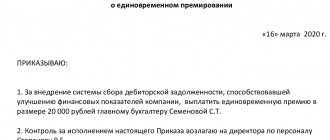The issue of the validity of currency clauses in contracts is not new, but it periodically becomes aggravated in the context of a depreciation of the national currency. The current situation in Russia is no exception, when the ruble exchange rate to the US dollar has fallen by more than half over the past two years, while currency exchange rate fluctuations in developed economies show completely different results - we can talk about growth or decline within 10 % in year. Such a serious fall in the Russian ruble could not help but bring to the fore the problem of the validity of the currency clause in contracts. However, its consideration should begin with an analysis of the legal basis.
Legal grounds for including a currency clause in contracts
According to paragraph 1 of Art. 140 of the Civil Code of the Russian Federation, the ruble is legal tender, obligatory for acceptance at face value throughout the Russian Federation. Consequently, any monetary obligation, as a general rule, is nominated and subject to execution in rubles. At the same time, this norm enshrines the so-called principle of nominalism, according to which the price in rubles, as a general rule, is not subject to revision, regardless of whether the real purchasing power of the ruble or its exchange rate relative to foreign currencies has changed. Of course, the recognition of the ruble as legal tender, as well as the principle of nominalism, have exceptions.
According to paragraph 2 of Art. 140 of the Civil Code of the Russian Federation, cases, procedures and conditions for the use of foreign currency on the territory of the Russian Federation are determined by law or in the manner established by it. This rule concerns the “use of foreign currency”, i.e. fulfillment of an obligation by paying foreign currency. Parties to contracts do not have the right to choose how to pay: payment in foreign currency is possible only in a limited number of cases; in other situations, payment is allowed only in rubles.
A different rule applies to the amount in which the monetary obligation is established (nominated), including the contract price. According to paragraph 1 of Art. 317 of the Civil Code of the Russian Federation, monetary obligations must be expressed in rubles. It would seem that the conclusion is clear... However, in paragraph 2 of Art. 317 of the Civil Code of the Russian Federation states that a monetary obligation may stipulate that it is payable in rubles in an amount equivalent to a certain amount in foreign currency or in conventional monetary units (ecu, “special drawing rights”, etc.). In the future, the condition of the contract, which involves the inclusion in a monetary obligation of an equivalent in the form of an amount in foreign currency, will be called a currency clause. Moreover, in this case, the amount payable in rubles is determined at the official rate of the corresponding currency or conventional monetary units on the day of payment, if a different rate or another date for its determination is not established by law or agreement of the parties.
Thus, by agreement of the parties, it is possible to adjust the payment amount in rubles established in the monetary obligation (contract price) based on changes in the exchange rate of the national currency in relation to the agreed equivalent. An option is also possible in which the parties do not determine (do not nominate) a specific amount in rubles in a monetary obligation, but establish an equivalent on the basis of which such an obligation must be fulfilled. Then there is a situation where the amount in rubles can be determined, since it is tied to a certain equivalent (for example, to an amount in US dollars, euros, etc.).
It should be noted that the establishment in a contract of a price that “can be determined based on the terms of the contract” makes it impossible to adjust the price based on “the price that, under comparable circumstances, is usually charged for similar goods, work or services” (clause 3 of Article 424 Civil Code of the Russian Federation).
In the lease agreements between PJSC Vimpel-Communications and PJSC Tizpribor, the equivalent in US dollars was established, on the basis of which the rent was to be paid in rubles in accordance with the ruble to US dollar exchange rate at the time of payment. By acting in this way, the parties implemented the principle of freedom of contract.
Tax legislation in the field of foreign exchange transactions
According to the laws of the Russian Federation, any income received by an individual is subject to personal income tax (NDFL).
). Its rate depends on the status of the taxpayer: for citizens and residents of the Russian Federation it is 13%, for foreigners – 30%.
So, if an individual received income as a result of currency transactions, he must pay personal income tax. But there are exceptions.
If the taxpayer received income as a result of foreign exchange transactions, and the money for the purchase or sale of currency was in the account at the client’s disposal for 3 years
, thanks to the investment tax deduction, you can avoid paying personal income tax.
Let's give an example . The client purchased 5 thousand US dollars three years ago, which he decided to sell at a rate favorable to him. If he has proof that the currency was purchased three years ago, he does not pay income tax.
The situation is similar with the purchase of currency for rubles. If they were at the client’s disposal for three years or more, there is no need to pay
.
Currency clause in contracts as a way to implement the principle of freedom of contract
The principle of freedom of contract, which is provided for in Art. 421 of the Civil Code of the Russian Federation, assumes that citizens and legal entities are free to enter into an agreement. One of the ways to implement this principle is to determine the terms of the contract at the discretion of the parties, except in cases where the content of the relevant condition is prescribed by law or other legal acts (clause 4 of Article 421 of the Civil Code of the Russian Federation). A currency clause in a contract is one of its conditions, the choice of which depends on the will of the parties. The law, as well as other legal acts, does not prescribe any special rules regarding the currency clause. If the parties decide to include it, then in the future its application is mandatory based on the inviolability of the contract (pacta sunt servanda).
Recently, there have been proposals to introduce restrictions into the law regarding the inclusion of currency clauses in contracts, but they only confirm that such restrictions currently do not exist and that one must be guided by the principle of freedom of contract.
The choice of a contract term such as a currency clause assumes that the parties (primarily the seller, lessor, contractor, etc., with whom the other party agrees) want to protect themselves from a depreciation of the ruble by tying the contract price to a more stable foreign currency or other equivalent. At the same time, when the ruble exchange rate increases, this allows the buyer, tenant, or customer to receive additional benefits, since the same amount in rubles is equivalent to the amount of foreign currency or other monetary equivalent. This means that the parties’ interest in including a currency clause is mutual, especially if the contract does not specify a fixed amount in rubles that must be paid under any circumstances.
Due to the fact that Russia is involved in the global system of economic relations, the fall in the value of the national currency simultaneously means that its purchasing power is decreasing, prices for goods, works and services are rising, and inflation is rising. Therefore, the interest of subjects of civil law relations to protect themselves from the effects of the listed negative factors by including appropriate insurance conditions in the contract is absolutely legitimate. The principle of freedom of contract makes it possible to include in agreements not only currency clauses, but also other conditions that protect against inflationary factors. In particular, it is possible to adjust payments in rubles based on the consumer price index or inflation (such an adjustment is not provided for in Article 317 of the Civil Code of the Russian Federation, but follows from the principle of freedom of contract).
On the contrary, the prohibition of adjusting payments under a contract based on a currency clause or existing inflationary factors is clearly unfair, since it violates the interests of subjects of civil law relations who receive less benefits than expected. After all, they have already incurred the expenses necessary to begin to generate income under the concluded agreement. In addition, one cannot fail to take into account that changes in the exchange rate of the national currency almost always depend on state policy. By depriving citizens and organizations of the opportunity to protect themselves from a fall in the exchange rate or purchasing power of the national currency, the state violates its constitutional obligations to them (see Articles 2, 7 and 8 of the Constitution of the Russian Federation).
Contract price and currency clause
The currency clause is directly related to the price of the contract, since it ultimately determines the amount of payment. In the case where the price is determined in rubles, the currency clause adjusts the payment if the cost of the ruble equivalent has increased. In the absence of a ruble price, the size of the payment is directly determined by the cost of the equivalent in rubles, and it can either increase or decrease. In both cases, the contract price takes into account the value of the equivalent to which it is tied. Without this, the price cannot be determined. In the case of a lease agreement between PJSC Vimpel-Communications and PJSC Tizpribor, the equivalent is the US dollar to ruble exchange rate established by the Central Bank of the Russian Federation on the date of the next payment.
Clause 2 of Art. 317 of the Civil Code of the Russian Federation allows for different ways of determining the value of the equivalent to which the contract price is tied. This is the official exchange rate of the relevant currency or conventional monetary units on the day of payment, unless a different rate or another date for its determination is established by law or by agreement of the parties. Accordingly, the price of the contract ultimately depends on what agreement the parties reached regarding the exchange rate or the date of its determination. In particular, the parties may agree that the rate is determined not on the day of payment, but on a certain date earlier or later, and also that the rate will be taken into account in a special manner. Any such agreement concerns the determination of the contract price, since it affects or may affect its size.
In the decision in the case between PJSC Vimpel-Communications and PJSC Tizpribor, the court concluded that with an increase or decrease in the exchange rate of the US dollar to the ruble, the rental rate does not change, but “only the fulfillment of contractual terms takes place” See. : decision of the Moscow Arbitration Court dated 02/01/2016 in case No. A40-83845/15-54-532. This decision was canceled by the appellate court at the time the manuscript was submitted for publication, but the consideration of the case is not completed. The size of the dollar equivalent (amount in US dollars) does not really change when the exchange rate changes, but the court changed the method of determining the dollar equivalent. The lease agreement included a condition according to which “if the exchange rate of the Russian ruble to the US dollar, established by the Central Bank of the Russian Federation on the date of payment, is more than 42 (forty-two) rubles per one US dollar, payment must be made at the rate of 42 (forty-two) rubles per U.S. dollar". Along with the indicated upper limit, the lower limit of the exchange rate was also fixed - 30 rubles. for 1 US dollar.
A change in the method of determining the dollar equivalent, namely the establishment of upper and lower limits, represents a change in the terms of the lease agreement (the amount of rent), since the methods for determining it are adjusted. Instead of determining the rent at the US dollar to ruble exchange rate on the payment date, it is calculated at the US dollar to ruble exchange rate within the established limits. As a result, by the time the decision was made, the rent had almost halved. In this regard, it seems strange that the court concluded that “the addition of the disputed clause does not violate the rights of the owner.”
Based on a misunderstanding, the court’s reference to clause 11 of the Review of the practice of resolving disputes related to rent (information letter of the Presidium of the Supreme Arbitration Court of the Russian Federation dated January 11, 2002 N 66; hereinafter referred to as the Review), according to which a change in the amount of rent as a result of adjustment to the indexation percentage is not a change terms of the agreement on the amount of rent in accordance with clause 3 of Art. 614 Civil Code of the Russian Federation.
Firstly, the clarification concerned whether, in relation to paragraph 3 of Art. 614 of the Civil Code of the Russian Federation, it is said that the condition on the amount of rent has changed if the amount of the currency equivalent established in the agreement remains the same, and taking into account the change in the exchange rate of the US dollar to the ruble, the amount of lease payments has actually changed. And the absolutely correct answer was given that the amount of the rent has not changed, since the previous amount of the equivalent (amount in US dollars) and the procedure for determining the rent remained unchanged.
Secondly, paragraph 11 of the Review did not deal with the case when the method of determining the dollar equivalent changes, namely, the upper and lower limits for accounting for the US dollar to ruble exchange rate were established. They represent another way of determining the course that the parties must agree on in accordance with paragraph 2 of Art. 317 Civil Code of the Russian Federation.
Finally, thirdly, paragraph 11 of the Review provides a second example when the rent is adjusted not by the indexation percentage, but in accordance with changes in the officially established exchange rate. There is no answer to the question of what to do if this rate is subject to additional adjustment with the establishment of upper and lower limits.
Since the court in its decision changed the lease agreement and, when considering the case, it was also assessed whether there were grounds for terminating the agreement, it is necessary to analyze in detail the cases when the lease agreement between PJSC Vimpel-Communications and PJSC Tizpribor could be changed or terminated.
What does 1 million dollars look like?
$1 million is just 100 packs of 100 dollar bills, weighing about 10 kg. , fits freely in the case.
This is what the most successful trader of our time, Warren Buffett, earns in about 19 minutes (the income of his Berkshire Hathaway fund for 2021 was $28.2 billion after taxes. That’s about $77 million per day)
Grounds for changing and terminating the lease agreement
According to paragraph 2 of Art. 450 of the Civil Code of the Russian Federation, at the request of one of the parties, the contract can be changed or terminated by a court decision only:
1) in case of a significant violation of the contract by the other party;
2) in other cases provided for by this Code, other laws or agreement.
A violation of the contract by one of the parties is considered significant, which entails such damage for the other party that it is significantly deprived of what it had the right to count on when concluding the contract. Before determining whether the breach was fundamental, it must be determined whether there was a breach of contract at all. Identification of a violation involves indicating which norms of laws or other regulations, as well as which provisions of the contract were violated.
An analysis of the court decision in the case between PJSC Vimpel-Communications and PJSC Tizpribor shows that the tenant did not bring, and the court did not identify, any actions of the landlord that violated the law or the agreement. Moreover, when concluding the lease agreement, the economic conditions were consistent with the interests of both the lessor and the lessee. The tenant's problems arose 5 years after the conclusion of the contract, and they did not depend on the actions of the parties. The circumstances in which the agreement operates have simply changed, namely the economic and legal situation in Russia, as a result of which the Central Bank of the Russian Federation abandoned its previous policy of regulating the ruble exchange rate.
The only argument that could, under certain circumstances, be used to justify the existence of a violation of the contract on the part of the lessor is the court’s reference to his bad faith. The decision in the case contains reference to paragraph 4 of Art. 1 of the Civil Code of the Russian Federation, according to which no one can take advantage of their illegal or dishonest behavior, as well as paragraph 2 of Art. 10 of the Civil Code of the Russian Federation, according to which the court, in case of abuse of rights, may refuse to protect such a person’s rights in whole or in part, as well as apply other measures provided for by law.
When justifying the dishonesty of a person, it is necessary to indicate which of his actions constitute an abuse of law. The court did not cite any violations, except for the reference to the fact that “the amount of the transferred fee should not exceed the usual rates paid for renting similar premises in the given area.” Based on the logic of the court’s decision, at the time the lease agreement was concluded, there was no excess of market rents. It arose later, as a result of the increase in the US dollar/ruble exchange rate in December 2014, more than doubling. Under no circumstances could the increase in the exchange rate depend on the actions of the lessor, which means that the case did not reveal any violations indicating abuse of rights.
And most importantly, the inclusion of a currency clause in the contract is directly provided for in clause 2 of Art. 317 Civil Code of the Russian Federation. Acting in accordance with the law, the lessor did not allow any deviations from the standard behavior (many lessors, when concluding long-term contracts, include currency clauses). This means that for these reasons it is impossible to talk about abuse of rights on his part.
It should also be mentioned that it is impossible to apply such a consequence of abuse of rights (sanctions), as a complete or partial refusal to protect it, to the landlord, who is the defendant in the case and does not make any demands on the tenant. As for other measures (sanctions) provided for by law, there is no possibility of changing or terminating the contract.
Thus, the case did not establish any actions by the lessor that would indicate a violation of the lease agreement on his part. And certainly there could be no talk of a significant violation of it. This means that there are no grounds for changing or terminating the lease agreement due to a significant violation committed by one of the parties - the lessor.
The agreement can also be amended or terminated on the grounds provided for by law, other legal acts or agreement. In relation to a lease agreement, the law establishes a number of grounds for its termination at the initiative of the tenant (Article 620 of the Civil Code of the Russian Federation). Initially, the tenant demanded termination of the contract, but not on the grounds listed in this article, but due to the fact that the contract contained a currency clause, and the circumstances of its execution had changed significantly. The court decided to change rather than terminate the contract.
The lease agreement did not provide additional grounds for its change. Therefore, only those required by law need to be taken into account. The only such basis is provided for in Art. 451 Civil Code of the Russian Federation. It should be studied in more detail, regardless of the fact that the court did not see its presence in the analyzed case. There are no other reasons. It is impossible to identify them based on a court decision. Court reference to Art. 421 and paragraph 1 of Art. 451 of the Civil Code of the Russian Federation is of little help. In Art. 421 there are no provisions for changing the contract, and the application of Art. 451 was excluded earlier in the reasoning part of the decision. The lease agreement between PJSC Vimpel-Communications and PJSC Tizpribor is not a mandatory agreement, the terms of which may be changed by the court at its discretion.
Significant change in circumstances
Change or termination of a contract due to a significant change in circumstances (clausula rebus sic stantibus, clause on the materiality of circumstances) is an extraordinary basis for changing (terminating) a contract, which is extremely rarely used. The courts did not apply it in Russia either during the period of default in 1998, when the ruble exchange rate fell 4 times, or during the comparatively milder financial crisis of 2008. The reason is that the clause on the materiality of the circumstances is an exception to the rule on the inviolability of the contract (pacta sunt servanda). If the contract could be easily changed and terminated, citing the fact that the circumstances that took place at its conclusion had changed, then its strength could be forgotten. Circumstances are constantly changing, and contracts must be respected.
Therefore, amendment or termination of the contract is possible not with any change in the circumstances from which the parties proceeded when concluding it, but only with a significant one. A change in circumstances is considered significant when they have changed so much that, if the parties could have reasonably foreseen them, the contract would not have been concluded by them or would have been concluded on significantly different terms. A significant change in circumstances is an evaluative concept. It depends on the specific case. Therefore, to identify it, the following additional conditions (criteria) have been established, which must be met in total:
1) at the time of concluding the contract, the parties assumed that such a change in circumstances would not occur. In relation to the currency clause, it is impossible to believe that the US dollar/ruble exchange rate will not increase significantly. History of Russia in the 20th and 21st centuries. shows that significant depreciation of the national currency occurred regularly: in 1917 - 1921, 1929 - 1933, 1941 - 1945, 1959 - 1960, 1989 - 1991, 1998 - 1999, 2008 - 2009. In such circumstances, the parties to the lease agreement should have assumed that a significant increase in the exchange rate of the US dollar against the ruble was not only predictable, but highly probable. The court agreed with this in its decision in the case;
2) the change in circumstances was caused by reasons that the interested party could not overcome after their occurrence with the degree of care and prudence that was required of it by the nature of the contract and the conditions of turnover;
3) execution of the contract without changing its terms would so violate the relationship of property interests of the parties corresponding to the contract and would entail such damage for the interested party that it would largely lose what it had the right to count on when concluding the contract;
4) it does not follow from customs or the essence of the contract that the risk of changes in circumstances is borne by the interested party. PJSC "Vympel-Communications" - the tenant under the agreement, is a commercial organization and independently bears the risk of an increase in the exchange rate of the US dollar to the ruble. It is responsible regardless of guilt (clause 3 of Article 401 of the Civil Code of the Russian Federation), which means it takes upon itself the consequences of accidental losses. In relation to the relations between the parties to the contract, the increase in the tenant's payments refers to such accidental losses.
The state's change in its financial policy, which led to the weakening of the ruble, is a business risk that commercial organizations must bear. At the same time, it does not apply to circumstances of force majeure (force majeure), since it does not have the property of extremeness and unpreventability (clause 1 of Article 202 of the Civil Code of the Russian Federation).
Thus, at least two of the four conditions necessary to amend or terminate the contract due to a significant change in circumstances are not met. The other two conditions must be proven by the person requesting modification and termination of the contract. In particular, under the second condition, the tenant had to prove that he could not increase the profitability of his business to cover the increased rental costs. According to the third, the costs of increased rent will significantly reduce the profitability of his business.
According to paragraph 4 of Art. 451 of the Civil Code of the Russian Federation, amendment of a contract due to a significant change in circumstances is permitted by a court decision in exceptional cases when termination of the contract is contrary to the public interests or will entail damage for the parties that significantly exceeds the costs necessary to execute the contract on the terms changed by the court. Termination of a lease agreement between two commercial organizations is unlikely to be contrary to the public interest, and the tenant is unlikely to experience significant damage, especially given the fact that there are now quite a lot of offers on the rental market for non-residential premises.
Obviously, it is impossible to talk about the presence of all four conditions in total for recognizing a significant change in circumstances in the case of PJSC Vimpel-Communications versus PJSC Tizpribor, as well as for choosing to change the contract instead of terminating it. That is why the court refused to change the agreement on the basis of Art. 451 of the Civil Code of the Russian Federation, taking into account the exceptional nature of such a change. There is no point in changing the approach that has developed in practice, especially since in much more seriously changed conditions (for example, during the default of 1998–1999), the courts refused to apply Art. 451 Civil Code of the Russian Federation.
Results
An analysis of the circumstances of the dispute between PJSC Vimpel-Communications and PJSC Tizpribor allows us to draw the following conclusions:
- the inclusion of a currency clause in the lease agreement is absolutely legal and complies with the principle of freedom of contract;
- the parties to the agreement independently bear the risks of changes in the value of the equivalent (amount in foreign currency) to which they linked payments under the agreement;
- a significant increase in the exchange rate of the US dollar to the ruble, which occurred after the conclusion of the contract, does not constitute a basis for a significant breach of the contract, nor for a conclusion about bad faith of any of the parties;
- amendment or termination of the contract due to a significant change in circumstances is an extraordinary reason and should not be made in connection with the depreciation of the ruble against the US dollar in 2014 - 2015;
- There are no other grounds for changing the lease agreement, which means that it is impossible to make changes to the lease agreement between Vympel-Communications PJSC and Tizpribor PJSC.
Sources for Fundamental Analysis of the US Dollar
Data on the economic situation in the USA is presented in the following research Wiki Masterforex-V:
- US economy : US budget deficit, US among the TOP 10 countries in terms of external debt, US dollar, Washington is the capital of the USA, America and the TOP countries in terms of average pension, US banknotes, USA and TOP 10 countries in terms of gold reserves, USA and inflation by country of the world, USA in credit ratings from Fitch Ratings and Standard & Poor's, USA and inflation by country of the world, unemployment rate in the USA;
- Central bank and issuer of dollars: US Federal Reserve;
- Financial regulators : CFTC, , NFA;
- Exchanges : Comex, NYSE, ICE, NYMEX, MGEX, NASDAQ, Nadex, CME, CBOT, CME, etc.
- US stock indices USDX, NASDAQ 100, S&P 500, Dow Jones - 30;
- US brokers : Interactive Brokers, ATC BROKERS, TD Ameritrade, FOREX.com, OANDA, Ally Invest;
- National payment systems of America: Google Pay, Discover Card, Amazon Pay, Stripe, Payza, Bitpay, Global Payments, ICBC, Payoneer, VISA, Discover Card, Diners club international, Google Checkout, Apple Pay, Western Union, Mastercard, Neteller, Paysafecard ;
- Foreign payment systems with instant USD exchange: WeChat Pay, Sberbank Online@yn, Xe com, Alfa-click, Payu, PayOnline, NixMoney, Sofort, Privat 24, Zolotaya Korona, Samsung Pay, Paymaster, ATF24, Maxipey, AliPay, Rapida, Contact, Belkart, Altyn Asyr, Paxum, Perfect Money, Elexnet, Paysera, RBK Money, Ecoin, Interkassa, Alexcredit, Qiwi, Money Online, Cloudpayments, JCB, Yandex.Money, Moment, Shopify, HandyBank, Bank of China, Prostir, Robokassa, AdvCash, WebMoney, MultiCard, Payza, CardPay, Payanyway, Portmone, Unistream, Idram, etc.
- Prominent American traders: Simons, Pedersen, Neely, Soros, Williams, Meriwether, Gann, Grinn, Kiyosaki, Douglas, Case, Gerchik, Bollinger, Dow, Livermore, Griffin, Prechter, Mootz, Buffett, Neeson, Elder, Jones, L. Williams.






